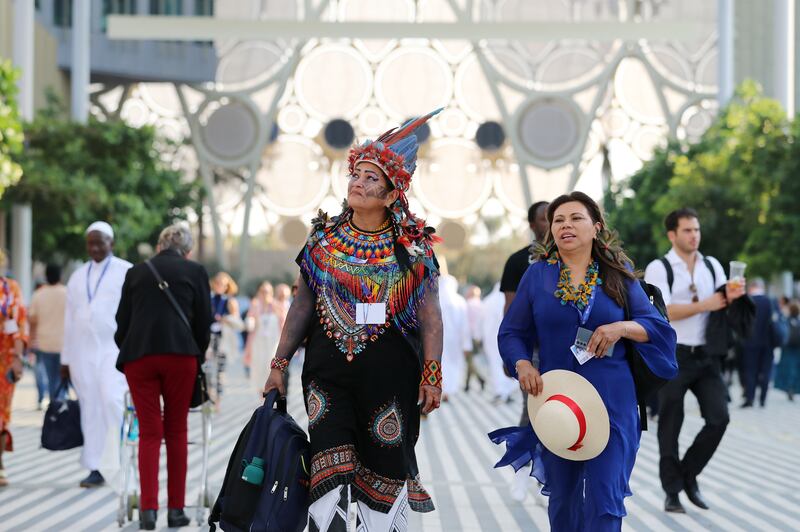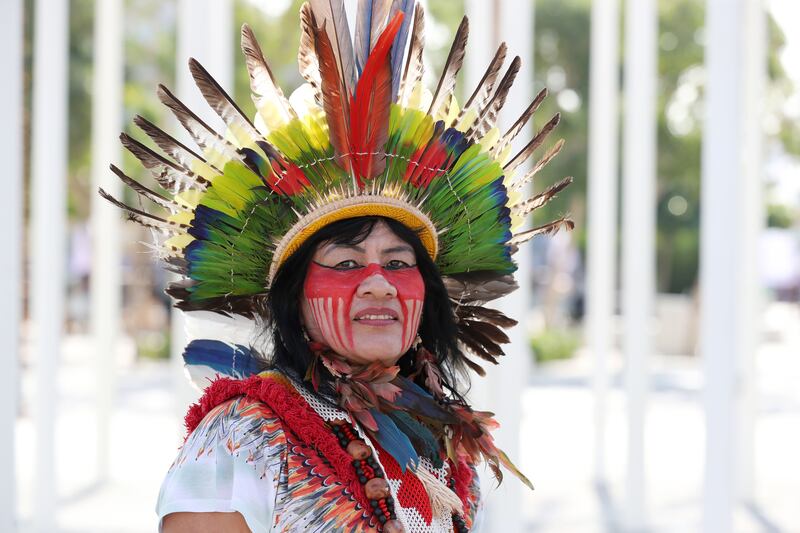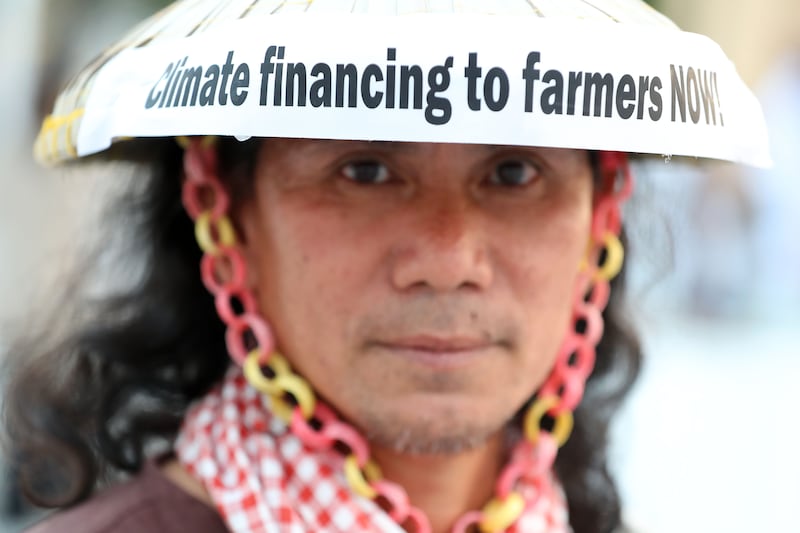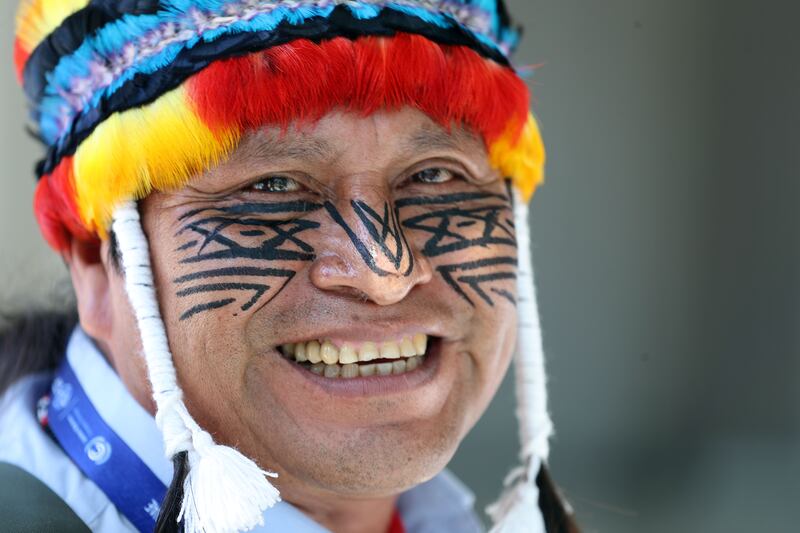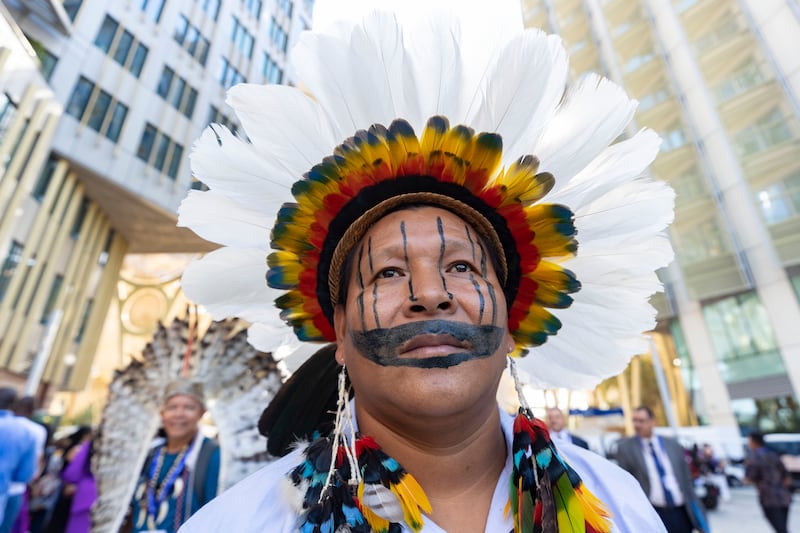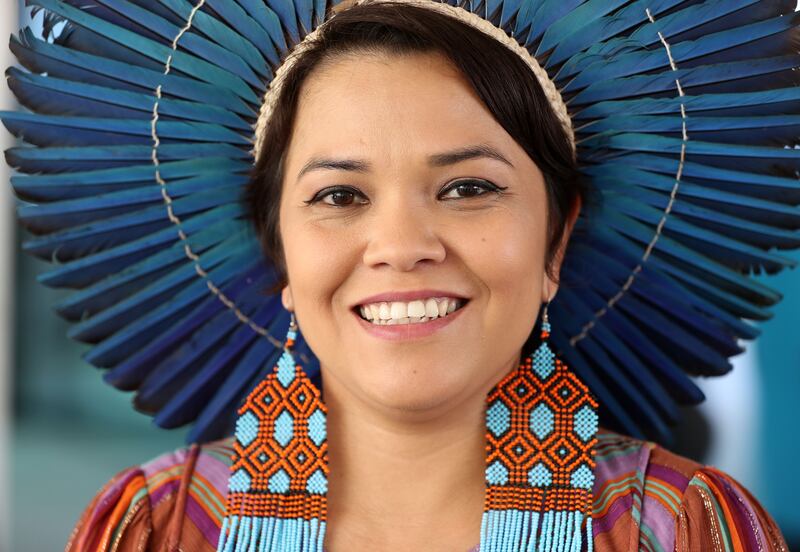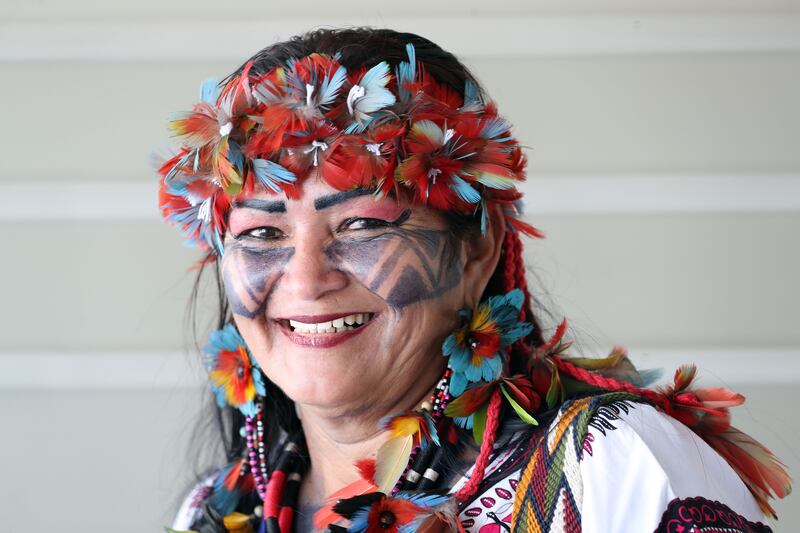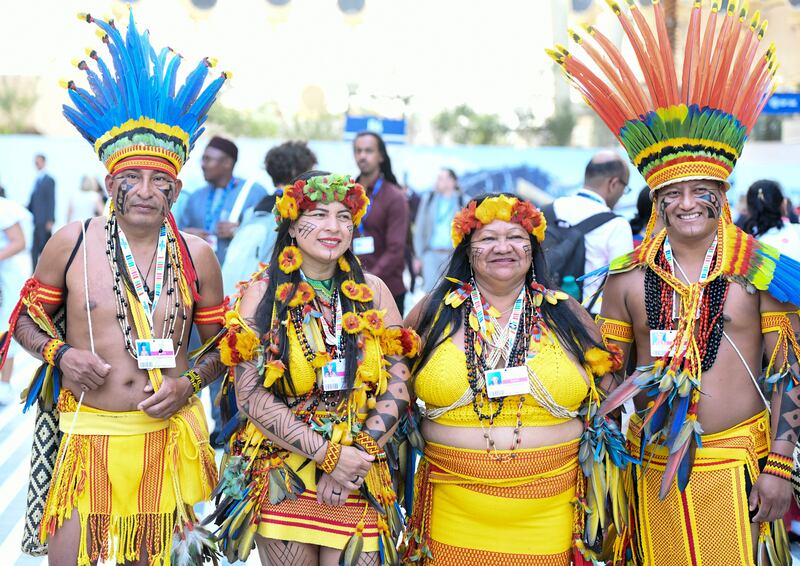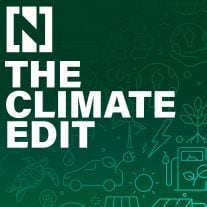Indigenous communities at Cop28 have called on world leaders to stick to commitments to protect ancestral land and forests in which their families have lived for generations.
Native communities from across the Americas and Asia say their heritage and unique traditions are under threat from climate change and mining companies setting up projects on protected land.
At the climate conference in Dubai's Expo City, indigenous people from various nations gathered in workshops and sang traditional songs on the streets.
“We are the guardians of the Earth, guardians of nature and come here to demand from all governments of the world to protect our land,” said Valdelice Veron from the Guarani-Kaiowa community, which has long fought for rights to the mineral-rich land in south-western Brazil.
Wearing red face paint and a colourful headdress – symbols of power in her matriarchal community of 170,000 – she spoke of attempts by miners to evict villagers to extract deposits of iron ore and manganese.
“I’m here to say our forests must be saved. I come to Cop so people can know the cause of the Guarani-Kaiowa people.”
Protectors at risk
The UN estimates there are more than 370 million indigenous people spread across 70 nations and recognises the need to respect and promote their unique cultures.
But climate activists say despite official demarcation of land on which indigenous people have lived for decades, protected status is often not upheld by governments.
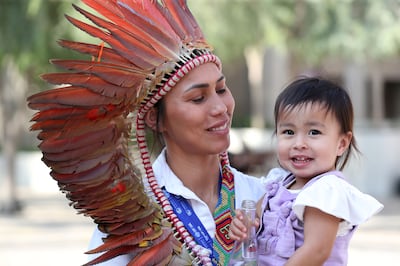
“We want to make ecocide – the severe destruction of nature – an international crime,” said Maite Mompo, director of non-government organisation Stop Ecocidio in Spain.
“It is to protect Mother Earth and also her defenders.
“We have come together at Cop28 to work for this.
“Protectors of the Earth, the indigenous people have been at risk for too many years.
“Coming here means the message spreads wider – it gives them a better chance to survive.”
Ecocide is a term that refers to illegal acts conducted in the knowledge of severe and long-term environment damage.
A number of world leaders, including Pope Francis and French President Emmanuel Macron, have cited wilful and widespread environmental destruction as a threat to humanity.
'We are sorrowful'
At a gathering in a Cop28 pavilion, a group from Khakassia, a mountainous region in the southern Siberian part of Russia, said its traditional way of life, hunting and foraging for food from the forest was being erased.
“My people are disappearing,” said Maria, who gave only a first name.

“We used to live on hunting. Our territory is rich in minerals, our lakes are rich with soil.
“Companies want to destroy our cultural heritage.
“Our people have had to move but nobody asked for our consent.
“We have filed cases in court but nobody is interested in our opinion.
“We are very sorrowful – coal companies carry on mining and we are deprived of our lives.”
More than 900 protected areas worldwide are under threat with continuing or planned fossil fuel extraction projects, with more than 2,000 oil, gas and coal ventures are within legally protected areas, said a report published this week by research group Earth Insight, the Leave it in the Ground Initiative and the IUCN World Commission on Protected Areas.
The study called for an end to such extraction and the immediate safeguarding of protected areas.
Wildfires destroy communities
Global warming also plays havoc with the land of native communities.
“Three massive wildfires converged on my community, burnt homes and displaced families,” said Britney Supernault, who belongs to the Metis people, an indigenous group in Canada.
She lives in Edmonton, a city in Alberta, while her father lived in a protected settlement devastated by last year's fires. Ms Supernault says they have received little help from the state or federal government since.
“My father was among the ones who lost his home, he is 68 and was forced to restart," she said.
“Our forest is scorched, my people cannot hunt, we cannot gather medicine, we cannot do our cultural rites as indigenous people."
Sharon Morin, also from the Metis, said more people need to hear their stories.
“We live closest to the land. The land is our sister, our mother,” she said.
“As a knowledge holder, I have learnt from sitting beside my grandmother, my grandfather, and want to pass on this knowledge from my ancestors.
“Our people need to be better protected.”
